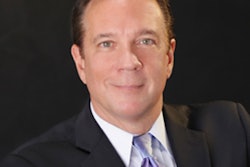
This article from Heritage Financial Consultants draws on the same core materials that are included in the management consulting program for Levin Group clients. By gaining a deeper understanding of their financial situation and the options available to them, dentists can make informed decisions that will enable them to reach their retirement goals sooner.
— Roger P. Levin, DDS
You've heard the old investment adage, "Don't put all your eggs in one basket." It's good advice.
 John G. McCarthy III is a partner with Heritage Financial Consultants.
John G. McCarthy III is a partner with Heritage Financial Consultants.A diversified portfolio should be at the core of any well-planned investment strategy. While a worthy goal at any age, it's especially desirable as your net worth grows over the years.
The basic purpose of diversification is to manage your portfolio risk and volatility. It's primarily a defensive type of investment policy. Depending on your investment goals and tolerance for risk, your strategy may emphasize one type of investment over another. But overall, no single type of investment performs well under all economic conditions.
A diversified portfolio is capable of weathering varying economic cycles much more successfully than one weighted to a particular industry or investment vehicle. Of course, diversification can't entirely eliminate the risk of investment losses or guarantee a profitable return. Diversification is an effective strategy for increasing the value of your portfolio over time, while mitigating the potential for decline.
How to diversify your portfolio
Your specific investment decisions will depend on a number of factors, such as your age, practice and personal debt, income, tax bracket, risk tolerance, liquidity needs, and investment goals. In general, a well-diversified portfolio might include the following:
- Cash reserves for short-term needs -- checking accounts, money market accounts, savings accounts, and shorter-term certificates of deposit
- Longer-term, taxable investments that are relatively liquid, such as those listed below:
- Stocks -- common or preferred
- Bonds -- U.S. government and corporate
- Mutual funds -- bond funds, growth funds, balanced funds, or international funds
- Tax-deferred and tax-free investments, such as the following:
- Annuities -- fixed and variable
- Qualified plans -- 401(k), 403(b), individual retirement account (IRA), Roth IRA, simplified employee pension (SEP)
- Municipal bond funds
- Real estate -- commercial and residential
- Tangible asset exposure through mutual funds -- precious metals funds and natural resources funds
You should consult an advisor regarding the design of a portfolio that is right for you and your time frame, risk tolerance, and potential return on investment.
Diversify beyond investments
Diversification alone may not be sufficient to protect your investments. By taking a broader view, an expert financial planner can devise a plan with specific safeguards in place to help protect you, your family, and your practice.
For instance, purchasing disability income insurance provides protection for your ability to earn a living in case you are no longer able to practice because of injury or illness. Life insurance is another form of protection. It can help preserve your estate assets and reduce the impact of your death on your family's standard of living. Life insurance can also provide the necessary cash for your survivors to pay estate taxes and other expenses, or to carry on managing your practice.
Estate planning should also be a part of your overall strategy. It can help preserve and direct the distribution of your assets after your death. Simply having a will may not be enough. You may need to coordinate your will with trusts for your children, life insurance, and estate tax planning.
A diversified financial planning strategy won't eliminate risk or guarantee success. But it does offer a sound approach for protecting and growing assets over time, while reducing risk. Talk with a qualified professional about how to put an effective financial planning strategy in place.
John G. McCarthy III is a partner with Heritage Financial Consultants and a registered representative of Lincoln Financial Securities offered through Lincoln Financial Advisors, a broker-dealer (Member SIPC) and investment advisory. Heritage Financial Consultants is not an affiliate of Lincoln Financial Advisors. Lincoln Financial Advisors does not provide legal or tax advice. CRN-1559901-080116
Disclaimer: The comments in this article are not meant to be taken as financial advice. DrBicuspid.com and the Levin Financial Group recommend that you always consult with your financial planner before making any significant changes in your financial situation.
The comments and observations expressed herein do not necessarily reflect the opinions of DrBicuspid.com, nor should they be construed as an endorsement or admonishment of any particular idea, vendor, or organization.



















